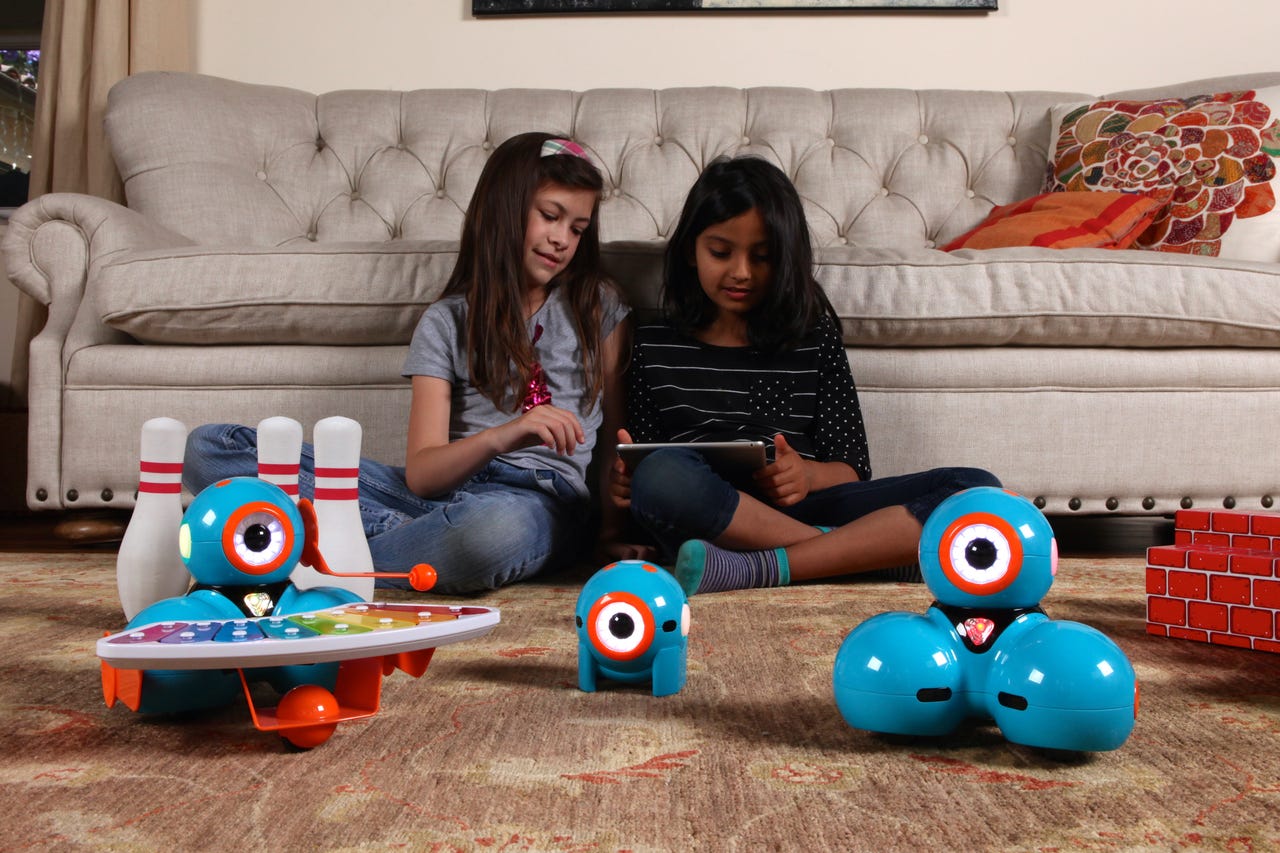Wonder Workshop announces Series B funding and global expansion


Image: Wonder Workshop
Robots are infiltrating elementary school classrooms, and that's great news for students and educators. Two toy robots called Dash and Dot were introduced by a startup called Wonder Workshop in December 2014, and they are already being used at 7,000 elementary schools to teach kids computer science and coding fundamentals. (READ: Wonder Workshop wants robots in the classroom.) The company has primarily been focused in the United States, but it is now poised to reach children all over the world.
Wonder Workshop today announced that it is now backed by $20 million from investors, which will help it grow into international markets, with a focus on Asia. This Series B financing round was co-led by WI Harper Group and Idea Bulb Ventures with participation from Learn Capital, Charles River Ventures, Madrona Venture Group and TCL. In addition to expanding globally, Wonder Workshop will use the financing boost to grow its management team and make new product investments.
We spoke on the phone with CEO and co-founder Vikas Gupta just a few hours before he hopped on a flight to Beijing to announce the company's official entry into the Chinese tech market.
"We've seen a very strong pace of adoption everywhere," he told ZDNet. "So that's leading the efforts for us to expand our reach, localize our content, localize our efforts -- and the recent round of financing helps our efforts go faster."
There are plenty of toy robots and robotics kits on the market, and at first glance it's hard to see why Dash and Dot stand out. Gupta explained that these little round robots are unique because they were designed specifically to teach children between the ages of 6 and 12 how to code. The robots are designed to be simple enough for kids to operate on their own, but Dash (the more expensive and sophisticated version) is still a bona fide robot with advanced sensors, a personality, and the ability to follow many different commands.
Vikas Gupta, CEO and founder of Wonder Workshop, poses with Dash and Dot robots.
Image: Wonder Workshop
"In every step, kids get to learn something about how robots think, how robots work, how they can program the robots in interesting and unique ways," said Gupta.
The company's announcement focuses on plans to expand into Asian markets, but Gupta said, "By no means have we saturated the United States market." He continued:
We are in close to ten percent of public elementary schools in the US today. We see a huge growth market in the United States. Last year we ran a robotics competition that got 5,000 children in more than 1,000 teams from across the country together. This year we're launching a competition in a few weeks and we expect to have more than 10,000 teams come together. We already have more than 5,000 clubs signed up from different parts of the country.So, the US is in a big growth trend, so that needs to be where we invest most of our resources, still. But so far we had grown mostly organically, but now we're taking an active step to expand outside the US.
Along those lines, teams that are located anywhere with internet access can participate in the competition. Wonder Workshop will assign challenges and missions for teams to complete. Kids will use the robots' apps to solve the puzzles, then they'll send the code back to Wonder Workshop for evaluation.
Although Gupta clearly embraces technology, he believes that technology should only be presented to children "when they're ready for it." This philosophy is why Dash and Dot are aimed at only a narrow age group. Gupta limits screen time for his own children (ages two and five), and focuses instead on encouraging them to play around with basic math problems and puzzles. "A lot of the problems that you solve in computer science tend to be about logic and reasoning more than anything else," he said.